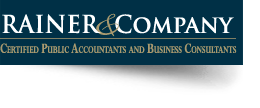THE WOLF BUDGET: SMALL BUSINESSES WILL TAKE A BIG HIT

Photo from wolfforpa.com
Governor Tom Wolf’s first state budget could be the last straw for some businesses in Pennsylvania. Sure, there are big changes that some business owners can benefit from. But from a tax standpoint, the Governor’s proposed budget is tough on all businesses across the board – the larger ones, start-ups and especially small businesses.
Why Small Businesses Suffer
The big problem for small businesses: raising the state personal income tax from 3.07 percent to 3.7 percent.
Most small businesses pay personal income tax on their business income (sole proprietors, partnerships, S corporations and most LLCs), and they really take a hit with this proposal. Think of the mom-and-pop businesses you know, the small manufacturers and the contractor who runs his business from his garage. All of them would pay more.
Another strike against small businesses: the proposed increase in sales tax from 6 percent to 6.6 percent and expanding the scope of the tax to include certain goods and services that were previously exempt.
Now when a company makes even the most basic purchase like office supplies, to larger ones like vehicles and equipment, it costs 10 percent more. Prices go up for professional services as well. Under Wolf’s budget, small businesses would no longer receive an exemption for professional services like engineers, architects, attorneys and yes, accountants. Governor Wolf proposes using the tax revenue from these tax increases to fund reductions in real estate taxes. But remember a few years ago when Governor Rendell made the same promise using taxes on gambling revenue? I didn’t notice my real estate taxes going down, and I expect you didn’t either.
Big Businesses and High-Tech Companies Hit Too
The little guys aren’t the only ones who could lose. Governor Wolf’s proposed budget is tough on larger public companies and certain sectors such as pharmaceuticals and some high-tech companies. Many of these businesses pay good wages to employees but often have significant losses in their early years. In the past, those businesses offset net operating losses by taking a tax deduction in future years. The governor is proposing a significant reduction in the cap on these losses. That makes Pennsylvania less competitive compared to other states that have no cap. If we are trying to convince businesses to expand or relocate here, this is a bad idea.
Let’s say a group of young entrepreneurs is looking to start a business together. They have a great business model, will offer jobs with excellent salaries and have the financial backing to get started. They project to be profitable in year five, after four years of losses. Will they decide to open their doors in Pennsylvania? The state has a lot to offer, but the reduction in the cap on net operating loss carryforwards may make them think twice.
The Upside
One major change for the better: the commitment to let the Capital Stock Tax expire.
This is a really archaic tax on earnings and equity that affects businesses wanting to invest in Pennsylvania. It’s scheduled to expire at the end of this year, and Governor Wolf has stated he will not try to reinstate this job-crushing tax. If it expires as planned, the state will be much more competitive.
Another benefit of Wolf’s budget: lowering the Corporate Net Income Tax from 9.99% to 4.99%.
This is a great idea. Our state’s rate would go from one of the highest in the nation to one of the lowest. However, there is a trade-off: in exchange for lowering the Corporate Net Income Tax, the governor wants to implement combined reporting. This applies to those Pennsylvania businesses with subsidiaries in other states. They would have to pay tax on the profits of their Pennsylvania entity and its subsidiaries, which in essence is a tax increase. Unfortunately for the smaller businesses mentioned earlier, this represents another tax increase for them, because they are not given a trade off of a reduced business tax rate.
The Governor’s budget may be intended to make Pennsylvania a more business-friendly state. But some major tweaks are needed to avoid having small business owners pay the lion’s share of tax increases to fund the Governor’s budget priorities.
Michael DeHaven, CPA, is a shareholder of Rainer & Company, an accounting firm with offices in Newtown Square and West Chester.

